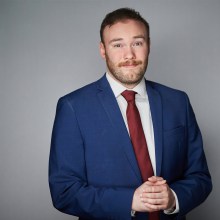
IN WHAT WOULD BE THE FIRST CONGESTION PRICING PROGRAM IN AMERICA – NEW YORK CITY OFFICIALS ARE PLANNING TO CHARGE MOST DRIVERS FIFTEEN DOLLARS TO ENTER MANHATTAN’S CENTRAL BUSINESS DISTRICT.
THE PROPOSAL RELEASED THURSDAY FROM THE TRAFFIC MOBILITY REVIEW BOARD IS DESIGNED TO REDUCE CONGESTION AND AIR POLLUTION, WHILE ALSO BRINGING IN ABOUT $1 BILLION ANNUALLY TO FUND UPGRADES FOR THE CITY’S MASS TRANSIT SYSTEMS.
HERE’S HOW IT BREAKS DOWN –
FROM 5 A.M. TO 9 P.M ON WEEKDAYS AND 9 A.M. TO 9 P.M. ON WEEKENDS
PASSENGER CARS WOULD PAY $15 TO ENTER MANHATTAN
SMALL TRUCKS WOULD PAY TWENTY FOUR DOLLARS
LARGE TRUCKS – THIRTY SIX DOLLARS
THOSE ENTERING MANHATTAN THROUGH THE FOUR TOLLED TUNNELS DURING THE DAYTIME CONGESTION HOURS WILL RECEIVE A CREDIT. CARS WOULD PAY $5 LESS.
THE PLAN ALSO CALLS FOR TOLL RATE DISCOUNTS WHEN TRAVELING DURING NON-PEAK HOURS AND FOR FREQUENT LOW-INCOME VEHICLE OWNERS.
TAXI DRIVERS WOULD ADD A $1.25 SURCHARGE PER RIDE FOR ENTERING THE CONGESTION ZONE – AND RIDE-SHARE COMPANIES LIKE UBER AND LYFT PASSENGERS WOULD SEE AN EXTRA $2.50.
NYC OFFICIALS BASED THEIR STRATEGIES ON SIMILAR PLANS IN SEVERAL CITIES AROUND THE WORLD – INCLUDING LONDON, SINGAPORE AND STOCKHOLM.
CRITICS OF THE CONGESTION PRICING INCLUDE NEW JERSEY GOVERNOR PHIL MURPHY – WHO CLAIMS IT WOULD UNFAIRLY AFFECT HIS NEW JERSEY RESIDENTS.
IN JULY, THE GARDEN STATE SUED THE FEDERAL GOVERNMENT FOR APPROVING NEW YORK’S PLAN.
MEANWHILE, BOTH UBER AND TAXI RIVERS HAVE ALSO EXPRESSED THEIR OPPOSITION TO THE PLAN, AND ARE ASKING FOR AN EXEMPTION FROM IT.
THE NEW YORK TAXI WORKERS ALLIANCE ESTIMATES THAT WITHOUT AN EXEMPTION, INDIVIDUAL DRIVERS COULD LOSE UP TO EIGHT THOUSAND DOLLARS A YEAR IN INCOME.
THE PROPOSAL STILL HAS TO BE APPROVED BY THE BOARD OF THE METROPOLITAN TRANSPORTATION AUTHORITY, WHICH RUNS THE CITY’S MASS TRANSIT SYSTEMS.









